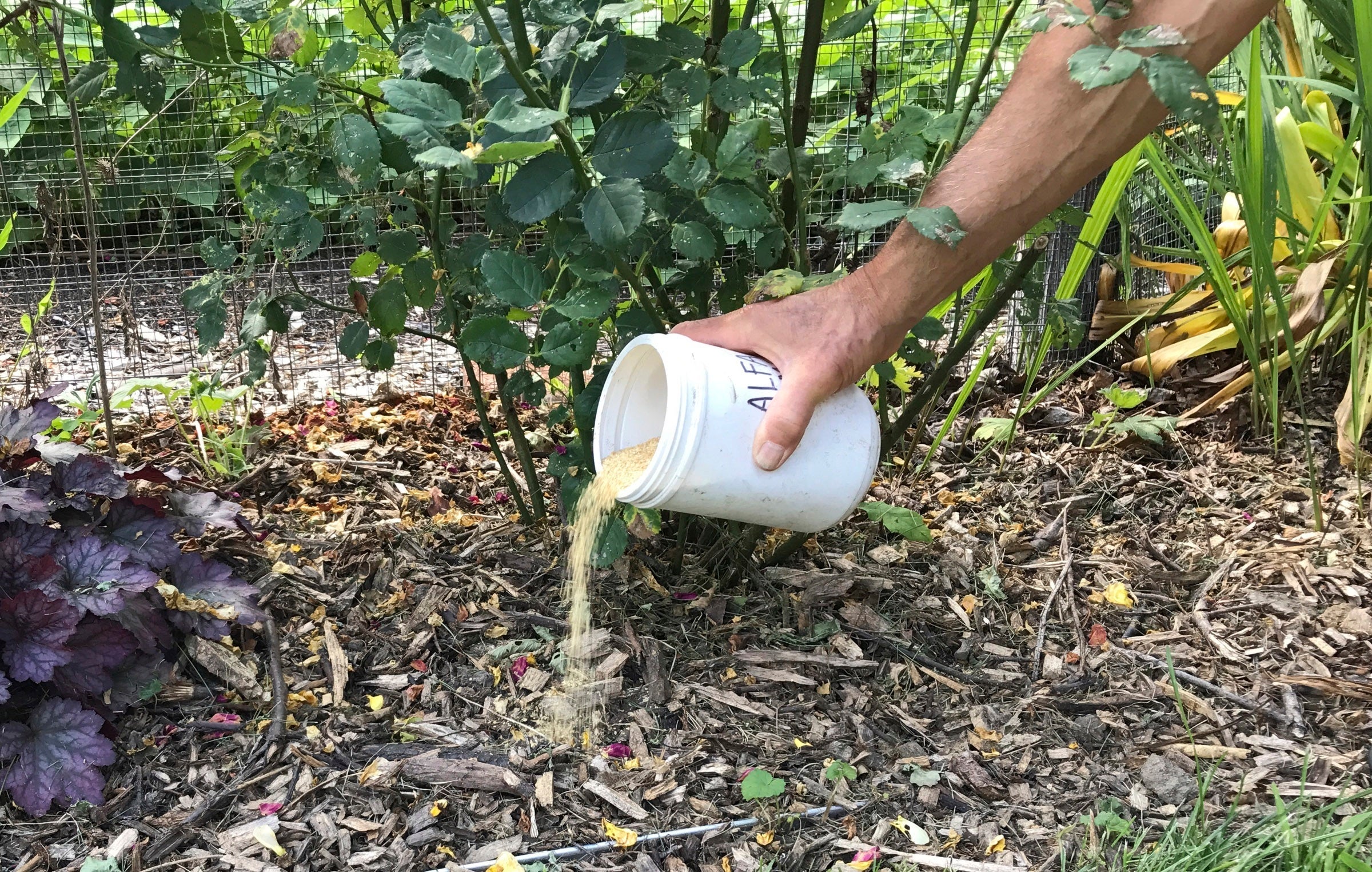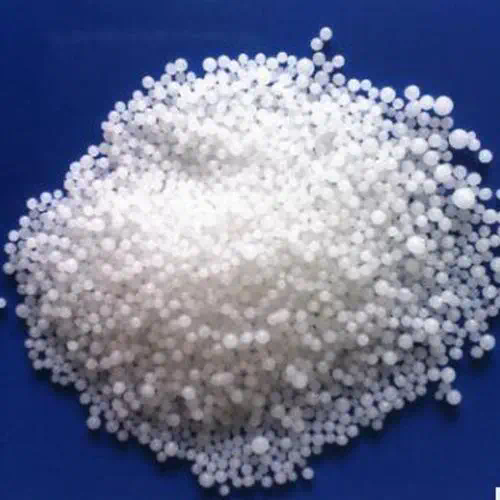Introduction: The Role of Potassium in Soil Health
Potassium is an important mineral nutrient for plant health and agricultural productivity, and essentially for life on earth. Potassium fertilizer organic is widely applied in plant metabolic processes like photosynthesis, nutrient absorption, and regulation of water status.
Organic sources of potassium, such as greensand, kelp meal, and wood ash, supply this vital nutrient to plants while also building healthy soil in the long term by increasing soil structure and microbial activity. Since garden and lawn success depends on soil health, it makes sense to use fertilizers that promote soil health over the long term. Organic potassium fertilizer is the main source of potassium used in organic gardening and farming because it is kind to the environment, allowing soils to continue to produce healthy plants for future generations.
They include experts such as Elaine Ingham, a soil biologist and founder of the Oregon-based fragrance company the Soil Foodweb, who says: ‘People shouldn’t stop using organic amendments to maintain soil health, but if you need to feed your soil more, having more vegetative cover through perennial crops will … build its ability to maintain a system of plant life not dependent on chemical inputs to offset and heal the degradation of the soil and its health.
People can add potassium fertilizer organic to the soil which will significantly improve the overall nutrient balance to their soil to help produce healthier plants and greater yields. Organic fertilizers breakdown slowly to release potassium to the plant at an even rate over time; the plant’s roots continually absorb the potassium while the fertilizer is in the soil, so as opposed to peak and trough scenarios, there is a steady supply. This introduction lays out building blocks that help readers understand the subject, and leads to a discussion of the different kinds of organic potassium fertilizers, and the specific soil and plant benefits of each.
Types of Organic Potassium Fertilizers
Organic potassium fertilizers are derived from natural sources and are essential for enhancing plant growth, improving root strength, and preventing diseases. These fertilizers also play a vital role in maintaining the ecological balance of soil. Here’s a detailed look at some common types of organic potassium fertilizers:
Greensand: This naturally-occurring mineral is rich in potassium and iron, making it an excellent slow-release potassium source. It gradually releases potassium over time, which is beneficial for long-term soil health improvement. Greensand also helps in improving water retention and making heavy soils more workable.
Kelp Meal: Produced from marine seaweed, kelp meal is a potent source of potassium and trace minerals. It acts as a quick-release fertilizer, providing immediate nutrients to plants. Additionally, kelp contains growth hormones that stimulate root development and enhance plant growth.
Wood Ash: A byproduct of wood burning, wood ash is another organic fertilizer rich in potassium. It is particularly useful for increasing soil pH and is beneficial for acidic soils. Wood ash also supplies plants with calcium and magnesium but should be used cautiously due to its potential to alter soil pH quickly.
Comparative Analysis:
- Greensand is ideal for plants that benefit from slow nutrient release, making it suitable for long-term soil health.
- Kelp Meal provides rapid nutrient availability, ideal for fast-growing plants or when quick nutrient uptake is needed.
- Wood Ash offers multiple nutrients but requires careful application to avoid drastic changes in soil pH.
These organic potassium fertilizers not only supply essential nutrients but also improve soil structure and enhance microbial activity. Understanding the nutrient content and release rates is crucial for effectively integrating these fertilizers into your gardening practices.
According to Dr. Sarah Green, an agricultural and environmental horticulturist, matching the type of fertilizer to the plant’s growth stage and soil needs is key. She emphasizes the importance of using appropriate particle sizes for different plants and adjusting applications based on the plant’s size and soil requirements.
By choosing the right type of organic potassium fertilizer, gardeners can support plant health, enhance soil fertility, and contribute to environmental sustainability.

Application Techniques for Organic Potassium Fertilizers
Understanding Potassium’s Role
Potassium is crucial for plant health, influencing water uptake, enzyme activation, and overall vigor. It’s important to assess your garden’s potassium needs through soil testing, which informs your application strategy.
Best Practices for Applying Potassium Fertilizer Organic
- Timing: Optimal times for application are during early spring for new growth and post-blooming to aid recovery.
- Methods of Application:
- Soil Application: Fertilizer should be spread near the plant base and incorporated into the soil, allowing a slow and effective integration of nutrients.
- Foliar Spray: Applying a dilute solution directly to the leaves can quickly address nutrient deficiencies.
- Dosage and Concentration: It’s crucial to adhere to the recommended dosage on the product label to avoid over-fertilization, which can harm plant health and soil quality.
- Application Interval: Generally, organic potassium fertilizers should be applied every 4-6 weeks during the growing season, adjusting based on the plant’s growth response and soil conditions.
Common Application Mistakes to Avoid
- Over-application: Excessive fertilizer can lead to nutrient imbalances and soil salinity, which may block the uptake of other essential nutrients.
- Improper Timing: Avoid fertilizing late in the season as it can promote new growth that may not withstand winter temperatures.
- Neglecting Soil pH: Potassium effectiveness can be affected by soil pH levels. Regular testing and adjustments are crucial to ensure optimal nutrient uptake.
Following these guidelines will help gardeners effectively use organic potassium fertilizer, enhancing plant growth and contributing to a healthier garden environment.
Real-World Applications of Organic Potassium Fertilizer
Gardener Testimonials: Gardeners who have switched from synthetic potassium fertilizers to organic fertilizers report healthier plants with stronger root systems and more resistance to diseases. One community garden in Oregon noticed that their tomato plants were noticeably more robust and more intensely coloured because they switched from synthetic fertilizers to a natural, potassium-rich organic blend.
The Impact of Agriculture Farmers – including those engaging in small organic farms and large agricultural operations – report that organic potassium fertilizer helps crop production. For example, on a California vineyard, organic potassium improved the grape yield and the soil’s ability to hold moisture, decreasing the need for irrigation.
The scientific evidence is overwhelming: we know and have known for a very long time that organic potassium fertilizer is beneficial. In a 2007 paper published in the Journal of Sustainable Agriculture, researchers concluded that sources of organic potassium such as greensand and kelp meal release potassium slowly, enhance the condition of the microbes in the soil — which in turn greatly facilitate the uptake of nutrients by plants.
For sustainable agricultural production and soil quality, studies extending for decades show that applying organic potassium fertilizer reduces input dependency with and increases soil structure while gradually enhancing soil quality, making crops more resistant to climatic stress and pests and improving the ecosystem.
These practical applications and studies in the field show that organic potassium fertilizer is helpful in contributing to increase crop production and soil health, which helps to promote both conventional and organic agriculture.
Enhancing Soil Health with Balanced Nutrition
- Balancing Potassium Against Other Nutrients: It’s essential to balance potassium with other necessary soil nutrients to avoid deficiencies. Regular soil testing can guide the appropriate amounts of potassium, nitrogen, phosphorus, and other crucial elements needed for a balanced soil nutrient profile.
- Adding Organic Composts and Mulches: Using organic composts and mulches alongside potassium fertilizer organic can enhance soil structure, improve water retention, and boost microbial activity. This helps make nutrients more accessible to plants and improves overall soil health.
- Strategic Fertilizer Application: Applying organic potassium in conjunction with other organic materials allows for a sustained release of nutrients, avoiding the sharp peaks and troughs in nutrient availability that can stress plants, thus fostering a stable environment for root and plant development.
- Monitoring Soil Health: Continuous monitoring and regular soil testing are crucial for adjusting fertilization practices effectively, ensuring that plants receive an optimal mix of nutrients and maintaining soil health over time.
These practices ensure that using potassium fertilizer organic not only enhances soil health but also supports sustainable gardening practices, contributing to long-term garden and environmental wellness.

Conclusion: The Sustainable Impact of Organic Potassium Fertilization
Applying organic potassium fertilizer will increase plant health and increase the natural quality of your soil. It provides a slow-release potassium source and reduces nutrient leaching, increasing environmental benefits. Sustainable growing practices will improve plant growth and plant vitality, helping reduce plant disease pressure, all important aspects in the long-term viability and success of our agricultural industry and food supply.
Looking ahead, gardeners and farmers could be encouraged to further explore and utilise organic potassium to develop a sound soil fertility management for their own production system. It not only contributes to higher plant yield but improves ecological functioning and the general health of the soil.
As this awareness and use of organic methods grows, in the years to come I expect to see an increasing use of organic-based potassium fertilizers – an increase in sustainable agricultural production and a healthier sustainable environment. Sustainable food production will increasingly be based on the development and refinement of organic fertilisation methods in the years ahead.
Together they emphasise the need for the application of organic potassium fertilisation strategies for the maintenance of plant health along with environmental stability.
FAQs: Common Questions About Potassium Fertilizer Organic
What is organic potassium fertilizer?
Examples of organic potassium fertilizers include kelp meal, wood ash and greensand. They supply the plant with a readily available source of potassium that is also a friend to the soil microbial community.
Why choose organic potassium over synthetic?
In contrast to synthetic amendments, organic sources release potassium gradually, minimising risks of nutrient runoff while improving soil structure and microbial health.
How often should I apply organic potassium fertilizer?
It depends on the crop and its nutritional needs – we regularly do soil tests that tell us what our plants need – but usually it’s applied at moments of greatest nutritional need, which happens frequently, usually every 4-6 weeks in the active growing season.
Can organic potassium fertilizer improve soil health?
And it is! He used a test pedometer to prove that street trees retained significantly more storm water than asphalt. He also proved that optimised street trees had increased microbial activity, improved both water retention and aeration in the soil and were frequently more effective at reducing heat transfer than asphalt or brick.
What are the signs of potassium deficiency in plants?
Symptoms include yellowing of leaf edges, brown scorching, and curling of leaf tips.
Here are some insightful references regarding the use of organic potassium fertilizer in various settings:
- Michigan State University Extension discusses the management strategies for potassium fertilizer, emphasizing the need to know critical soil test levels for potassium which are affected by the soil’s cation exchange capacity (CEC). This article also highlights the importance of understanding crop removal rates of potassium to manage soil fertility effectively .
- The Pennsylvania State University Extension article on managing potassium for crop production explains how potassium behaves in the soil and how it should be managed for different crops like corn and alfalfa. It also describes the forms in which potassium is found in the soil and how these are utilized by crops .







